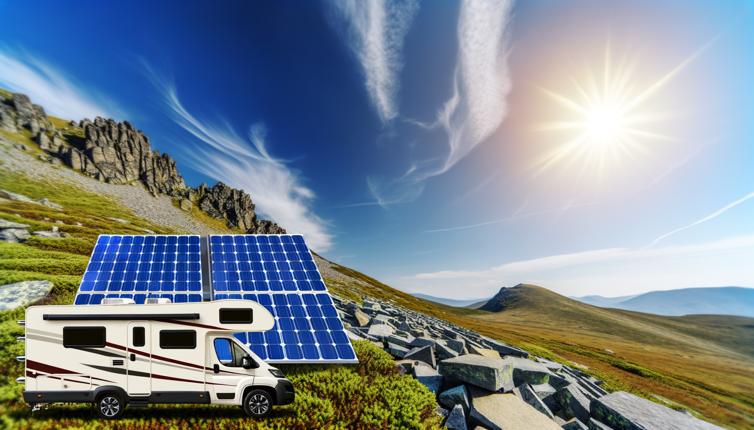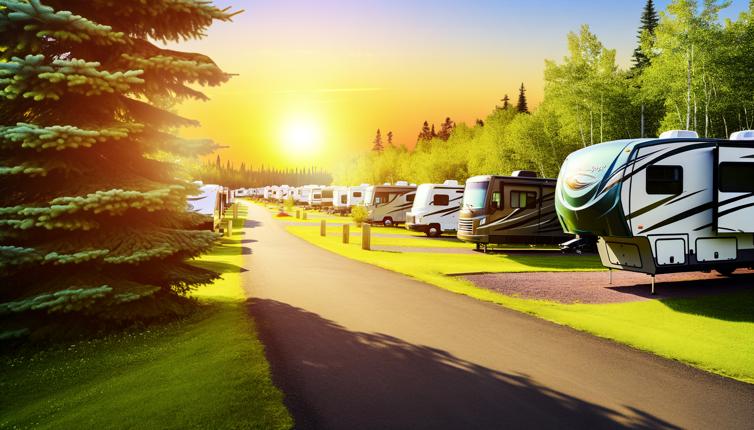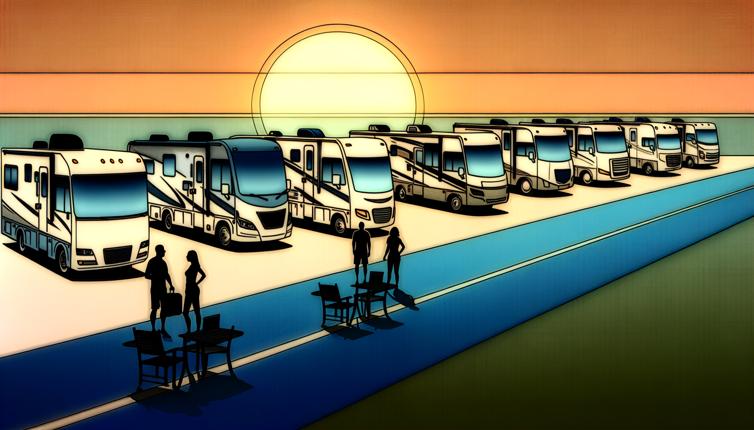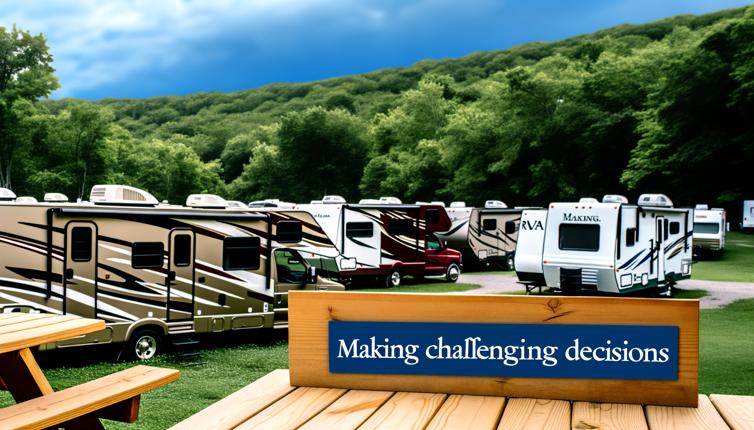Understanding Your Power Needs
Before diving into the world of RV solar systems, it's important to understand your power needs. Take some time to evaluate how much power you will require while camping off-grid. Consider the appliances and devices you plan to use, such as lights, a refrigerator, a water pump, or even a TV. Make a list of all the electrical equipment and estimate their power consumption in watts.,Once you have a clear understanding of your power needs, you can calculate the size of the solar system required to meet those needs. You will need to consider factors such as the average sunlight hours in your camping location, the efficiency of the solar panels, and the battery capacity.
Types of RV Solar Systems
There are two main types of RV solar systems: grid-tied and off-grid. Grid-tied systems are connected to the electrical grid and use it as a backup source of power. They are great for RVs that will be regularly parked at campsites with electrical hookups. Off-grid systems, on the other hand, are independent and do not require any connection to the electrical grid. They are designed to function solely on solar power and are ideal for truly off-grid camping in remote locations.,Within the off-grid category, there are two subtypes of RV solar systems: portable and roof-mounted. Portable solar systems are easy to transport and set up, making them a popular choice for RVers who frequently change campsites. They usually consist of solar panels, a charge controller, and a battery. Roof-mounted systems, as the name suggests, are permanently installed on the roof of the RV. They require professional installation but offer a more seamless and integrated solution.
Choosing the Right Solar Panels
When it comes to solar panels, there are different types and technologies to choose from. The most common types are monocrystalline and polycrystalline panels. Monocrystalline panels are known for their high efficiency and sleek black appearance. They perform better in low-light conditions and have a longer lifespan. However, they are also more expensive compared to polycrystalline panels. Polycrystalline panels are more affordable but have slightly lower efficiency. Consider the trade-offs between efficiency and cost when choosing the right solar panels for your RV solar system.,Another factor to consider is the wattage of the solar panels. The wattage determines how much power the solar panels can generate. To calculate the required wattage, divide the total wattage consumption of your electrical equipment by the average sunlight hours in your camping location. This will give you an estimate of the minimum wattage needed for your RV solar system.
Battery and Charge Controller Selection
The battery and charge controller are crucial components of an RV solar system. The battery stores the energy generated by the solar panels, while the charge controller regulates the charging process to prevent overcharging or damage to the battery. When selecting a battery, consider the capacity (measured in ampere-hours) and the type. The most common types of batteries for RV solar systems are lead-acid and lithium-ion batteries. Lead-acid batteries are more affordable but have a shorter lifespan and require regular maintenance. Lithium-ion batteries, although more expensive, have a longer lifespan, weigh less, and require less maintenance.,Similarly, the charge controller should be selected based on the wattage and voltage of the solar panels. Make sure the charge controller can handle the maximum voltage and current generated by the solar panels. It's also important to choose a charge controller with advanced features, such as temperature compensation and multiple charging modes, to maximize the efficiency and lifespan of your battery.
Installation and Maintenance
After selecting the components, it's time to consider the installation and maintenance aspects of your RV solar system. If you opt for a portable system, installation should be relatively easy, and you can move the solar panels around to optimize sunlight exposure. However, roof-mounted systems require professional installation to ensure proper placement and secure attachment to the roof. Make sure to follow the manufacturer's instructions and consult a professional if needed.,Maintenance is also an important aspect to consider. Solar panels generally require minimal maintenance, but it's recommended to clean them regularly to remove dirt and debris that can reduce their efficiency. Check the battery's water levels (if using a lead-acid battery) and monitor the charge controller's performance to ensure optimal operation of your RV solar system.
Conclusion
Choosing the right RV solar system for off-grid camping is essential to ensure a reliable source of power and sustainability in remote locations. Start by evaluating your power needs and then decide between a grid-tied or off-grid system. Consider the different types of solar panels, their efficiency, and wattage. Pay attention to the battery type, capacity, and charge controller compatibility. Finally, don't forget the importance of proper installation and maintenance for the longevity of your RV solar system. With the right system in place, you can enjoy the freedom of off-grid camping without sacrificing power and sustainability.
Conclusion
Selecting the right RV solar system for off-grid camping can seem overwhelming at first, but by understanding your power needs, considering the different types of systems, choosing the right solar panels, batteries, and charge controllers, and taking into account installation and maintenance requirements, you can ensure a reliable source of power and sustainability in remote locations. Enjoy the freedom and eco-friendliness of RV solar systems while exploring the great outdoors!









